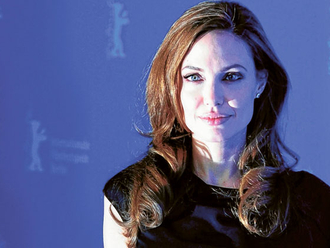
A new James Bond song is about to be unleashed upon the world. The theme tune to Spectre has been recorded in conditions of secrecy more associated with the spy trade than the music business. Rumours abound about the identity of the latest stars granted a licence to thrill. Will it be experimental rock group Radiohead keening ominously about the end of the world? Or vibrato-voiced Ellie Goulding vamping it up? Other names in the frame include Brit soul singer Sam Smith, moody teenage star Lorde and dramatic art rockers Florence + the Machine.
Such is the hype around the Bond theme that last week, following big wagers on Radiohead and Goulding, William Hill suspended betting. It is hard to think of any other movie where a title tune could provoke such intrigue. But then, no other film franchise is as inextricably linked with pop music. Over 53 years and 24 official Bond movies, the title sequences have provided an opportunity for music’s biggest stars to sing paeans to a cold-blooded assassin.
On the face of it, James Bond is quite an unlikely pop icon. He is a very old-fashioned heroic archetype: macho, violent, sexist, ice cool to the point of emotionless, a military man with a streak of personal vanity and a snobbish taste for the trappings of wealth and luxury. In Ian Fleming’s books, the character expressed no interest in music whatsoever. In films, he is occasionally spotted at a classical concert or opera, usually on a murderous assignment. In Goldfinger (1964), Sean Connery’s Bond illustrated his disdain for pop by saying unchilled champagne was “as bad as listening to the Beatles without earmuffs”. Nine years later, a Beatle would be singing his praises.
Paul McCartney’s theme for 1973’s Live and Let Die illustrates a peculiar dichotomy at the very heart of a Bond song. Pop music tends to be underpinned by idealism, the notion that love will conquer all. Yet here was one of the icons of Sixties hippy values glorifying revenge and murder. So much for letting it be. The Bond themes are an early example of the kind of cross-marketing that has become prevalent in pop, of mutual benefit to star and moviemaker. The artist gets a massive advertising budget and global exposure, while the film company uses the unveiling of the theme as a key element of its publicity campaign. The title song helps keep the franchise hip.
There is enormous kudos attached to writing and performing a Bond theme. “Every time we do [a new film], you get asked by some of the biggest artists in the world [if they can write the theme],” says film composer David Arnold, who scored five Bond films from 1997-2008. “It’s frankly embarrassing to be saying to some of these people, ‘I’m sorry, you’re not right.’ They may be enthusiastic, brilliant and selling hundreds of millions of records, but I look at it like casting a movie: who can exist alongside this film and feel like they are part of the fabric of it?” Alice Cooper, Blondie, Pulp, Muse and Amy Winehouse are among many who either submitted or recorded songs that failed to make the grade.
So what makes a Bond song? “It is quintessentially sexy and British, if you can be sexy and British at the same time,” says Arnold. “It’s a cross-pollination of black and white music styles. It’s the cold, detached, icy guitar figure followed by a very cool, hip, Count Basie-style swing section, which is all about leaving the world behind you and leaping effortlessly into a car and speeding off somewhere. It’s music that describes a life with no consequences to your actions.” There was a particular flavour established by composer Monty Norman and arranger John Barry’s theme for Dr No in 1962, all slow-moving, sinister orchestral chords, high-impact brass and racy surf guitar. This remains 007’s signature theme, integrated throughout every soundtrack. Barry went on to score 11 Bond movies, creating a strong template for the title song with Matt Monro’s noirish ballad From Russia With Love (1963), Shirley Bassey’s lusty Goldfinger (1964), Tom Jones racy Thunderball (1965) and Nancy Sinatra’s seductive You Only Live Twice (1967). “There is an expectation that you will hear strings and brass,” concedes Arnold, “you will have an aching kind of melody and a sense of excitement. John Barry casts a very long shadow.”
In 1971, Barry and lyricist Don Black composed what many consider the definitive Bond song, Diamonds Are Forever, a theatrical ballad with sinister harp arpeggios, explosive trumpet bursts and a toweringly camp performance from Bassey. American composer Thomas Newman admitted he found it daunting taking over the Bond reins with Skyfall in 2012. “It’s got to be the iconic theme of all time and you wonder what you could add to it.” There were nods throughout his score to Barry’s style, “that major-minor thing, the use of harp, the sense of darkness and exquisiteness and sexiness all at the same time”. When pop producer Paul Epworth was brought in to work on the title song with Adele, he watched 13 Bond films in a row to “decipher the musical code”, eventually determining that they rely on “a minor ninth as the harmonic code”. It became a huge hit worldwide, selling five million copies. Yet the formula lays Bond songs open to spoof.
Melodramatic ballads and sassy come-hither belters are the stuff of Austin Powers and Johnny English. Many Bond songs themselves sound like pastiche, such as the curiously bloodless Barry-Bassey ballad Moonraker (1979), Tina Turner’s overblown Goldeneye (composed by Bono and the Edge, 1995) and Sheryl Crow’s drearily systematic Tomorrow Never Dies (1997). Fleming’s titles boast an exotic turn of phrase that can tend towards the comical when sung with gusto, although lyricist Tim Rice wisely decided to spare Rita Coolidge belting out Octopussy (1983), concocting insipid ballad All Time High instead. Efforts to squeeze in references to the character’s lethal trade can lend an air of campy insincerity too, as on Lulu’s cabaret-rock turn, The Man with the Golden Gun (1974).
Some of the most popular Bond themes dramatically broke the mould, as on McCartney’s reggae-rock romp and Carly Simon’s playful ballad Nobody Does It Better for The Spy Who Loved Me (1977). Yet songwriters mess with the formula at their peril. Madonna’s cut-up digital dance track Die Another Day (2002) was voted the least favourite Bond song by Telegraph readers, while Jack White and Alicia Key’s riff rocking Another Way to Die for Quantum of Solace (2008) was greeted with near insurrection on fan sites. Fans have very fixed ideas conforming to whenever they made their attachment to the series, a mix of impossible expectation and bitter disappointment, making the Bond song something of a poisoned chalice. Arnold believes “Bond themes become great Bond themes when they become the sound of a great Bond movie”. Whoever has tackled the new song, it’s safe to assume the film title will not play a key part. Spectre is an acronym for Special Executive for Counter-intelligence, Terrorism, Revenge and Extortion. Try singing that with a straight face.












